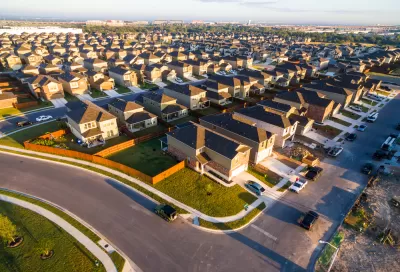As the outbreak continues, the country’s housing finance system faces a number of serious threats and challenges.

Don Layton presents a detailed analysis of the U.S. housing finance system and various stress points that could emerge as the result of the coronavirus pandemic.
Layton’s in-depth discussion covers topics including mortgage-backed securities, Federal Home Loan Banks, non-bank services, private mortgage insurance companies, credit risk transfer, and government-sponsored enterprise.
"If these stresses are not adequately addressed, the impact on the mortgage markets could be severe, making housing finance more expensive and more scarce, and making the mortgage system a continuing source of financial instability," says Layton.
Layton also advocates for a post-mortem to better understand the system’s weaknesses and vulnerabilities. "After the crisis subsides, it will be time for a proper, comprehensive review of housing finance to improve its liquidity, capitalization, and the many operational mechanisms that do not do well in a stressed environment."
FULL STORY: AMERICA’S HOUSING FINANCE SYSTEM IN THE PANDEMIC: TEN STRESS POINTS TO WATCH

Trump Administration Could Effectively End Housing Voucher Program
Federal officials are eyeing major cuts to the Section 8 program that helps millions of low-income households pay rent.

Planetizen Federal Action Tracker
A weekly monitor of how Trump’s orders and actions are impacting planners and planning in America.

Ken Jennings Launches Transit Web Series
The Jeopardy champ wants you to ride public transit.

California Invests Additional $5M in Electric School Buses
The state wants to electrify all of its school bus fleets by 2035.

Austin Launches $2M Homelessness Prevention Fund
A new grant program from the city’s Homeless Strategy Office will fund rental assistance and supportive services.

Alabama School Forestry Initiative Brings Trees to Schoolyards
Trees can improve physical and mental health for students and commnity members.
Urban Design for Planners 1: Software Tools
This six-course series explores essential urban design concepts using open source software and equips planners with the tools they need to participate fully in the urban design process.
Planning for Universal Design
Learn the tools for implementing Universal Design in planning regulations.
Ada County Highway District
Clanton & Associates, Inc.
Jessamine County Fiscal Court
Institute for Housing and Urban Development Studies (IHS)
City of Grandview
Harvard GSD Executive Education
Toledo-Lucas County Plan Commissions
Salt Lake City
NYU Wagner Graduate School of Public Service





























